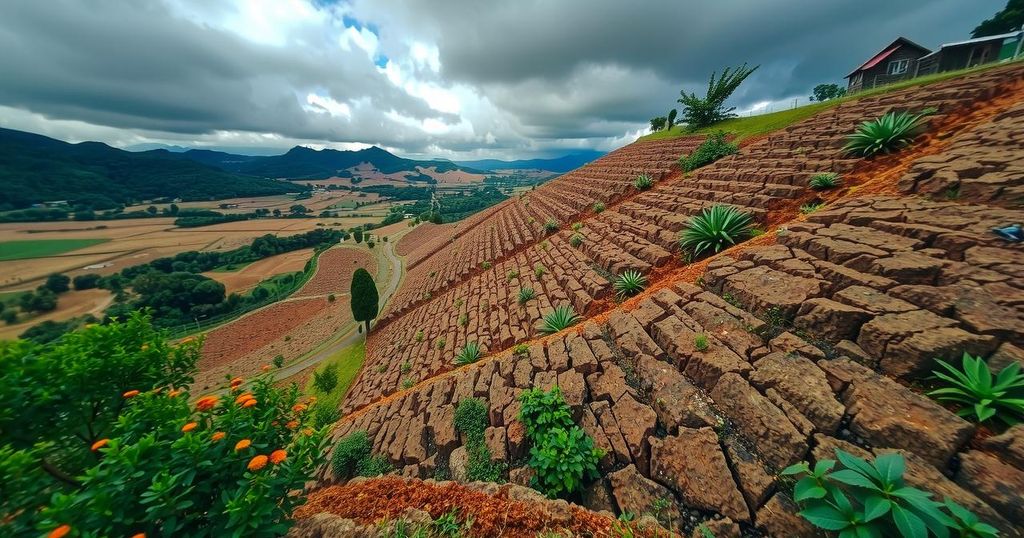Ecuador is enduring its worst drought in six decades, compounded by wildfires threatening biodiversity. The severe drought impacts critical sectors such as agriculture and energy, resulting in rationing measures due to decreased hydropower output. Both students and experts point to ineffective government responses and systemic issues rooted in climate change as key challenges in addressing the crisis. To resolve these ongoing issues, comprehensive climate strategies and accountability from industrialized nations are necessary.
Ecuador, renowned for its stunning landscapes and rich biodiversity, is currently grappling with the most severe drought it has faced in sixty years, compounded by widespread wildfires threatening its ecological heritage. This situation arises from the country’s diverse microclimates, leading to variable weather patterns across its regions. Notably, the Andes Mountain range experiences a dry season that exacerbates fire risks, particularly in the face of rising UV radiation and climate change which have been exacerbated by human activities. The recent drought, significantly impacting water reservoirs, agriculture, and hydropower—accounting for 70% of Ecuador’s energy production—has led to imposed electricity rationing across the nation since mid-September. Local students, such as Alejandra Baca and Felipe Rivadeneira, express frustration over the apparent ineffectiveness of government emergency management strategies and the rising incidence of forest fires, which many attribute to human actions rather than solely to climate patterns. Experts like Professor Janice Harvey emphasize that addressing the crisis requires a critical view of both systemic climate issues and accountability for industrialized nations, which have historically contributed to climate change. In light of this, the ongoing multifaceted crisis extends beyond immediate response measures toward a need for comprehensive solutions rooted in collaborative climate action.
Ecuador’s ecological variability is significant, with the country housing a unique blend of climates resulting from its varied geography. The impact of climate change on Ecuador is becoming increasingly evident as severe drought conditions coincide with rising temperatures and decreased precipitation since 2023. This environmental crisis severely affects the country’s hydropower generation, agriculture, and overall energy management, causing cascading effects on the populace’s quality of life. The interplay between natural phenomena and human-inflicted challenges highlights the urgency for effective leadership and responsible governance in tackling climate-related emergencies.
In conclusion, Ecuador’s current environmental crisis stems from a combination of long-standing climate change effects, regional mismanagement, and human actions that exacerbate wildfire risks. The voices of the Ecuadorian populace encapsulate the growing frustration over government responses, while expert opinions stress the need for a systematic understanding of the crisis to forge effective solutions. Ultimately, the significance of accountability for historical contributors to climate change remains critical for Ecuador and similar nations to mitigate ongoing and future challenges.
Original Source: theaquinian.net






